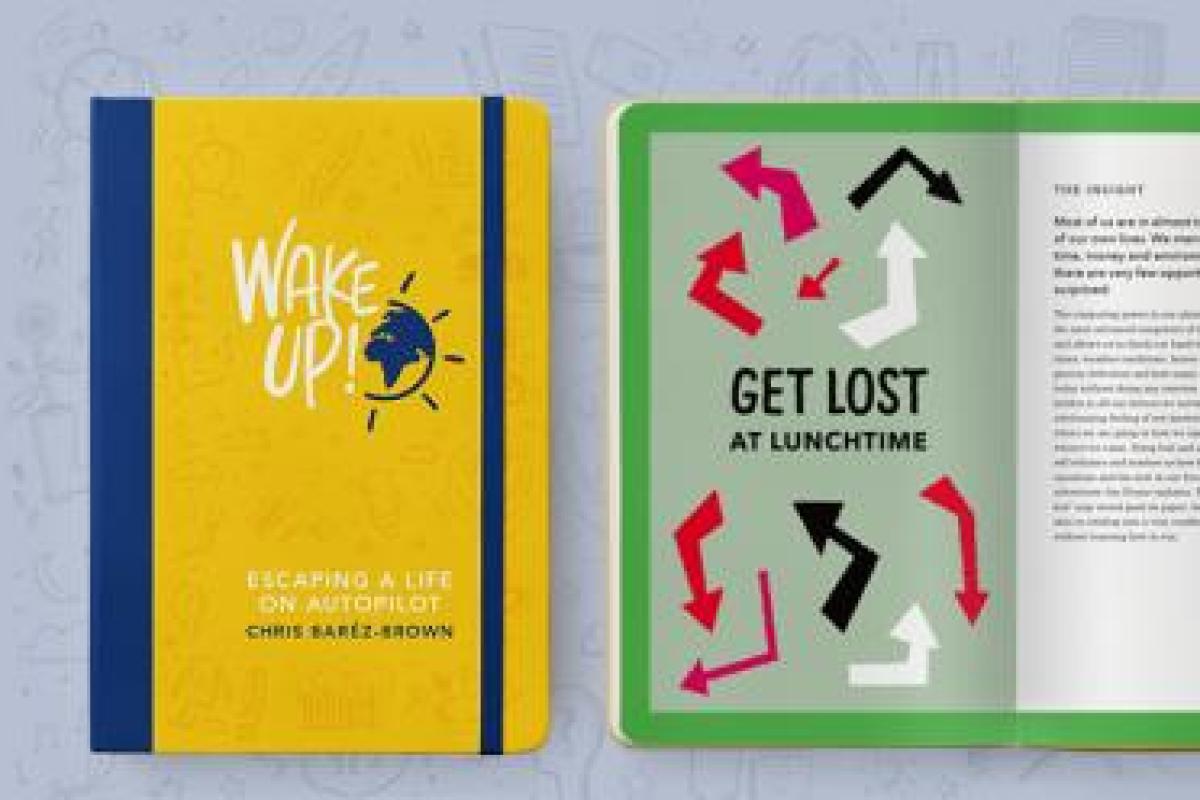Trying to read and then write a review of “Wake Up” by Chris Baréz-Brown is not something that can be done quickly.
It is not that the book is difficult to read, nor is it that long. I might also add that I am not an exceptionally slow reader.
No, the issue arises because the book is a compendium of what the author calls ‘experiments’, and each experiment needs to be done over a period of time to see if and how well they work for you. There are over 50 experiments in the book and Baréz-Brown asks the reader not to “just pick up this book, read it and put it back on the shelf; you need to experience these experiments to shift your consciousness”. As experiencing them fully might take at least a week each, if I had tried them all, you wouldn’t be reading this now.
“Wake-Up” is mix of a book about mindfulness, a self-help book, a workbook along the lines of ‘The Ideas Book’ with an injection of a mind-expansion ‘pill’. Its central premise is a strong one: Baréz-Brown says we live about 80% of our lives on autopilot and we could all benefit from a series of nudges and jolts to take us out and beyond our normal routines. His experiments are therefore designed to open our eyes, to encourage us to do more, to live more and generally to try to get more out of our lives.
The experiments are split up into sections with titles like ‘Breathing’, ‘Tune In’, ‘Lost in Music’ and ‘Listen to your Body’. Each experiment is introduced with an insight and include a plan, the payoff and then sometimes some space to capture your thoughts and reflections. There are some lovely factoids in many of the insights like “One hundred years ago, only 10 per cent of us had sedentary jobs”.
Of the experiments I tried or already use, some of my favourites are ‘Get lost at lunchtime’, ‘Be lost in Music’ and ‘Say Yes’.
While I enjoyed the book, a couple of things did niggle a little bit - not always delivering the “giggle” Baréz-Brown wants the book to be.
One is that if anything there is too much in it - so many suggestions, so many experiments. If you tried to do them all, I’m not sure how much time you would have for the routine but important things in life.
The other, which may also be a function of the number of experiments, is that some of them did start to sound a bit repetitive. A case in point being ‘Write a letter to someone you care about’ in which we are told to include one thing we truly appreciate about the person we are writing to, which isn’t that different to the suggestion we find one person and share with them what it is that we love about them, made in ‘Spread the Love’.
However, I may be nit-picking. any book that champions the extraordinary and truly technicolour world we live and how we should do more to enjoy it is to be applauded.



